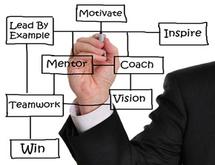Leadership development now has a greater significance than ever in this organizational world of today. In addition to leading their teams, leaders must also handle uncertainty, accept change, and promote resilience. Effective leadership is more important than ever as organizational deal with ongoing turmoil in a post pandemic world.
Adapting Leadership Styles
Leadership styles frequently need to be modified as a result of change. A more directive approach might be required to bring clarity and stability during times of crisis or uncertainty. Leaders should be adaptable enough to switch to a more collaborative and empowering leadership style as circumstances settle, though. Teaching leaders the skill of flexibility through leadership development programs can help them effectively respond to the changing needs of their teams and organizations.
Embracing Innovation and Creativity
Innovation is frequently associated with change. Leaders who can encourage a culture of innovation and experimentation within their teams will do better in challenging times. Initiatives for leadership development should inspire leaders to welcome innovation, take prudent risks, and question the status quo. By doing this, leaders may motivate their people to innovate, be more flexible in the face of change, and spot unanticipated opportunities.
Resilience as a Leadership Skill
Resilience is a non-negotiable leadership quality in times of upheaval. In addition to overcoming setbacks, leaders must motivate their subordinates to do the same. Programs for developing leadership skills may include approaches for managing stress, creating resilience, and having a positive outlook. Setting an example for their teams that difficulties can be surmounted and that adversity can spur growth, resilient leaders set the tone for their organizations.
Effective Communication
During times of change, communication must be clear and compassionate. Leaders need to provide their teams direction, address issues, and keep them informed. The development of communication skills for leaders should be prioritized. These abilities should include active listening, emotional intelligence, and the capacity to explain complicated ideas in simple terms. A sense of oneness inside the company is fostered via transparent and trusting communication.
Leading by Example
Leaders that set a good example motivate their followers to do the same. The value of authenticity and integrity in leadership should be emphasized in leadership development. Leaders that exhibit integrity, humility, and a dedication to moral conduct set the bar for their organizations. Leaders create confidence and credibility by living up to their words, which is crucial in times of upheaval.
Cultivating Adaptability
Adaptability is a crucial leadership quality because change is continuous. Leadership training programs should equip participants with the skills and knowledge necessary to embrace change, deal with uncertainty, and maintain their agility. The ability to quickly pivot, make sound decisions, and seize opportunities makes a leader more capable of guiding their organizations through difficult times.
Wrapping it up
Effective leaders are those who continuously seek to improve their abilities, evolve their leadership styles, and adapt to the constantly changing business landscape. By putting an emphasis on adaptability, innovation, resilience, effective communication, leading by example, and cultivating adaptability, leaders can guide their organizations through change with confidence and success.
Latest posts by Tresha Moreland (see all)
- Recession 2008 Versus 2024: Lessons Learned and Key Workforce Differences - April 24, 2024
- Why Layoffs Fall Short: Embracing a Holistic Approach to Cost Savings - April 21, 2024
- Find Your Anchor In A Sea Of Fear - April 18, 2024













